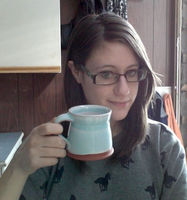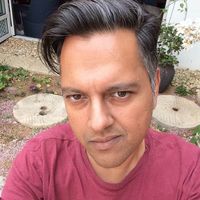My final two columns: Part One
By rob mclennan
After nearly a decade, my time as a columnist for Open Book comes to a close. According to my email folder, it was May 2009 when Amy Logan Holmes first approached me with the idea of submitting pieces to the site, and I have thoroughly enjoyed and appreciated the opportunity to write innumerable pieces on books, chapbooks, writers, publishers, reading series, book fairs, festivals and bookstores over the past eight years. Not that I’ll suddenly hold an amount of free time without my Open Book deadlines: I’ve been posting monthly to Ploughshares blog (featuring interviews with Canadian writers, publishers and editors), and am still curating the weekly “Tuesday poem” series over at the dusie blog, interviewing poets via Touch the Donkey, curating the regular “On Writing” series of essays over at the ottawa poetry newsletter, and recently surpassed eight hundred publications as editor/publisher through my above/ground press (publisher of poetry chapbooks and broadsides, founded in 1993). I should also mention that a small group of us recently launched many gendered mothers as a forum for short essays on literary influence, a site that has been gaining incremental steam now for nearly three months.
And of course, I’m home full-time with our two wee girls as my wife, the poet and book conservator Christine McNair, returns to work in April after her year-long maternity leave. What is this free time of which you speak?
For my final two columns, I thought it might be interesting to highlight some of the emerging or lesser known writers I think are worthy of some further attention. There’s always so much activity that one can barely keep track, but here are a couple of suggestions:
Sarah MacDonnell, Ottawa
We aren’t entirely sure where she appeared from (her bio speaks of her as “A Montreal-born, Canadian-American baker-poet hyphen-lover currently residing in Ottawa, she has enjoyed homes in Cape Breton, Toronto, California, and Connecticut.”), but wherever she was before, reports of Sarah MacDonnell’s first appearances in open sets in Ottawa last summer ran through the community like electricity. Her first chapbook—the lithium body (In/Words, 2017)—is a long, fragmented, polyvocal poem that speaks of illness, medication and the physical and spiritual body.
(like him)
I refuse to be sick
kicking at the metal air-conditioning unit
kicking from the car seat kicking the foam off the front seat
Your CanLit News
Subscribe to Open Book’s newsletter to get local book events, literary content, writing tips, and more in your inbox
kicking the couch
kicking, kicking, kicking
please don’t let me be sick I want to kick you sick
please don’t be sick
Part of what originally struck about MacDonell’s work is the expansive canvas she attempts, writing a series of fragments and abstracts reminiscent of the work of Canadian expat Nathanaël. Throughout the text, MacDonell explores and confronts illness and medication, floating in and out of concrete images into a kind of dream-state. What is curious is the uncertainty in which this project might still be unfinished, whether she is continuing to expand the poem into something larger, or has moved on into further work. Either way, hers is an incredibly exciting discovery.
Emily Izsak, Toronto
I was first introduced to the work of Emily Izsak thanks to Michael Boughn, via COUGH magazine, a publication that seems to appear randomly, each issue of which is edited/produced by a different member or two of the bpNichol Lane writers’ group. One of the sharpest young poets I’ve seen in some time, Izsak is currently in her second year of U of T’s MA in English and Creative Writing program. Her work has been published in Arc Poetry Magazine, The Puritan, House Organ, Cough, The Steel Chisel, The Doris, and The Hart House Review. In 2014 she was selected as PEN Canada’s New Voices Award nominee. Her chapbook, Stickup, is available on woodennickels.org and her first full-length collection, Whistle Stops, will be out in April 2017 from Signature Editions. I interviewed her recently for Ploughshares (to appear online later in April). Here is an excerpt of that conversation:
Q:
Prior to Whistle Stops, you published a small chapbook, Stickups. What was the process of moving from individual poems to something chapbook-length, and eventually book-length? How did the chapbook first come about?
A:
In the third year of my undergrad I took a Canadian poetry course with Lynn Crosbie. She mentioned to me that her friend, Stuart Ross, was looking for poetry manuscripts and asked if I had one. I didn’t have a manuscript but I did have a bunch of individual poems. I never really thought about writing a book before then. I was writing poems and hoping that a magazine might publish one of them. I sent Stuart my makeshift manuscript which was just those individual poems put into one word document. He didn’t end up publishing it (for good reason, it was nowhere near ready) but I was able to clean it up and publish it with Shuffaloff/Eternal Network (Mike and Victor’s publishing imprint) a while later. Stickup was fun to make, one of my good friends Ketzia Kobrah (http://www.ketziakobrah.com/) designed the cover and with the help of Google and Youtube tutorials, I taught myself how to use InDesign. I put the book together myself (with lots of input and design advice from Mike Boughn). After Stickup, I knew I wanted my next project to be a book that began as a book. Whistle Stops began as an idea for cohesion. I knew I was going to be on a train a lot because my boyfriend had just started medical school in London and I was taking courses in Toronto. I also had recently written an essay on Allen Ginsberg’s Iron Horse (another book that Victor pointed me to) so I was thinking about long train poems and the sexual content of that specific train poem. I also didn’t like coming up with titles for poems and I liked the idea of just assigning a short poem to a train ride and titling it after the date and the time and the train number. I really like how ideas and themes and images started to develop in the book as I was writing it and how I could track patterns and either make a conscious effort to continue them or decide to squash them.
Faizal Deen, Ottawa
After a lengthy period of quiet, Guyanese-born Ottawa poet Faizal Deen returns with a second poetry collection, The Greatest Films (Mawenzi House, 2017) which, in part, “addresses Caribbean queer Islamic identities in the post-9/11 era.” His first collection, Land Without Chocolate, a Memoir (Wolsak & Wynn, 2000), was Guyana’s first LGBTQI poetry collection. A doctoral student in the Department of English Language and Literature at Carleton University, Deen is a contributor to the Migration and Diaspora Studies initiative at Carleton, where he seeks to address the ways in which the cultural production of Caribbean populations in Canada—in particular, the work of poets—encourages us to rethink existing notions of diasporic identity. I interviewed him as well for Ploughshares (to appear online later this month). Here is an excerpt of that conversation:
My second book, The Greatest Films, addresses in part Islamic heritage in Guyana and Trinidad and is very much my own first response to the “War on Terror” and where Caribbean identities are situated within such geo-political and -cultural realities.
Q:
How were you galvanized by the events of 9/11? How did those events turn into action on your part, which then turned into writing?
A:
I acquired a different kind of awareness around the movement of bodies, of racialized bodies, after 9/11. I always had a consciousness around the dispersal and encampment of populations even before immigrating to Canada. As someone who holds the Caribbean always in mind, and particularly Guyana, no matter how faraway it sometimes seems, I grew up with a sense of a dreadful history that had happened in Guyana. But I also knew that the particulars of this catastrophe had brought together populations from all corners of the Earth producing creolizations exemplary of the Caribbean archipelago. But what of creolized Islam? Antillean Islam? Caribbean Islam? In the context of the real and imagined Islams of post-9/11 White reportage, what would my personal Islam look like?
Writing after 9/11 means I track the movement of my body from the ways in which its Brownness is demarcated in the Caribbean to how it becomes named and renamed in the Global North. This tracking uncovers poetically a secular urban Caribbean Islamic upbringing that sits at odds with the fallacies of a radicalized Islam invented by the West as pervasive fact. Terms like “radical Islam” are terrifying to me because they are offered up by hegemonic Whiteness wresting the power to carve up Islam according to Judeo-Christian taxonomies, gradations, moral common denominators.
All of this is, for me and in my recent work, the result of 9/11.
Emily Izsak lives in London, Ontario with her boyfriend who is completing a medical degree at Western University; however she makes frequent trips back to her hometown of Thornhill, Ontario where she used to live with her parents, two brothers, dog, two cats, and an uncertain number of snakes. She is in her second year of U of T’s MA in English and Creative Writing program. Her work has been published in Arc Poetry Magazine, The Puritan, House Organ, Cough, The Steel Chisel, The Doris, and The Hart House Review. In 2014 she was selected as PEN Canada’s New Voices Award nominee. Her chapbook, Stickup, is available on woodennickels.org and her first full length collection, Whistle Stops, is forthcoming from Signature Editions in April 2017.
Faizal Deen (Forrester) was born in Georgetown, Guyana and moved to Canada in 1977. He now resides in Ottawa where he is pursuing a doctorate in English at Carleton University. Deen earned degrees from Queen’s University and the University of Windsor where his creative M.A. thesis included the manuscript poetry recently published as The Greatest Films.
The views expressed by Open Book columnists are those held by the authors and do not necessarily reflect the views of Open Book.
Born in Ottawa, Canada’s glorious capital city, rob mclennan currently lives in Ottawa, where he is home full-time with the two wee girls he shares with Christine McNair. The author of more than thirty trade books of poetry, fiction and non-fiction, he won the John Newlove Poetry Award in 2010, the Council for the Arts in Ottawa Mid-Career Award in 2014, and was longlisted for the CBC Poetry Prize in 2012. In March, 2016, he was inducted into the VERSe Ottawa Hall of Honour. His most recent titles include The Uncertainty Principle: stories, (Chaudiere Books, 2014) and the poetry collection A perimeter (New Star Books, 2016). An editor and publisher, he runs above/ground press, Chaudiere Books (with Christine McNair), The Garneau Review (ottawater.com/garneaureview), seventeen seconds: a journal of poetry and poetics (ottawater.com/seventeenseconds), Touch the Donkey (touchthedonkey.blogspot.com) and the Ottawa poetry pdf annual ottawater (ottawater.com). In fall 2015, he was named “Interviews Editor” at Queen Mob’s Teahouse, and recently became a regular contributor to both the Drunken Boat and Ploughshares blogs. He spent the 2007-8 academic year in Edmonton as writer-in-residence at the University of Alberta, and regularly posts reviews, essays, interviews and other notices at robmclennan.blogspot.com.





